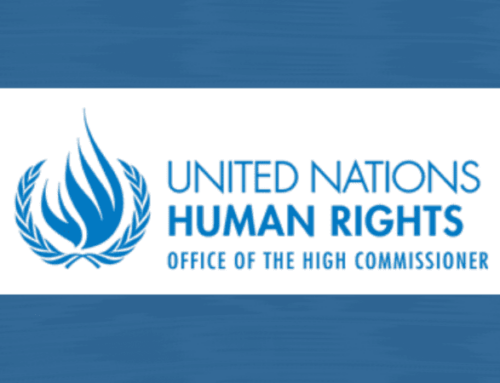Monitoring of the case of Alexander Shchegolev (hearing on 08.18.20)

On August 18, 2020, a regular hearing was held in the Shevchenko District Court of Kiev in the case of the ex-head of the Security Service of Ukraine (SBU) of Kiev and the region, Alexander Shchegolev.
He is accused of organizing the violent dispersal of peaceful protests on February 18-19, 2014. For a long time Shchegolev was in custody, but on June 26, 2019, the court released him under round-the-clock house arrest and ordered him to wear an electronic bracelet, later the measure of restraint was changed to a personal obligation.
This session began with the fact that the defense lawyer challenged the prosecutor A.A. Suprun. He claims that the appointed prosecutor, in prior agreement with one of the officers of the General Prosecutor’s Office, creates obstacles in the defense of the interests of the accused by the lawyer, namely, in terms of receiving information constituting state secrets. The defense lawyer says that for almost a year he has been unable to obtain information in order to familiarize himself with the documents that prove A. Schegolev’s innocence. In his words, he received permission to obtain state secrets from the authorized bodies. Referring to this, the defense has doubts about the impartiality of the prosecutor.
According to the prosecutor, the application for his challenge is unfounded, explaining that the admission to state secrets does not fall within his competence. The victim’s defender also objected to the challenge.
The court rejected the request.
On August 21, 2020, the term of the measure of restraint (a personal obligation) for Alexander Shchegolev expired, therefore, at this hearing, the prosecutor’s petition to change the measure of restraint from a personal obligation to a round-the-clock house arrest using an electronic control device was considered.
Prosecutor A.A. Suprun substantiated the petition by the fact that, in his opinion, the previously declared risks are not diminishing, just the opposite, namely:
– the risk of escaping from the court;
– the risk of destruction of any of the documents that are essential for criminal proceedings;
– the risk of illegal influence on victims, witnesses or other participants in criminal proceedings;
– obstruction of criminal proceedings in any other way.
The prosecutor referred to the fact that on February 19-20, 2014, Alexander Schegolev destroyed a number of documents. Also, he drew the attention of the court to the fact that the accused committed the alleged crimes in complicity with other heads of state and law enforcement agencies. During March – July 2020, a measure of restraint in the form of detention was applied to the persons whom the prosecutor designated as accomplices. The prosecution stated that it is precisely the measure of restraint in the form of round-the-clock house arrest with the use of an electronic means of control for a period of 60 days that will help to avoid any risks.
The defendant’s lawyer objected to the petition, since he did not see in the prosecutor’s petition a justification for toughening the measure of restraint. In the period from June 23 to August 18, there were no hearings and the evidence was not considered, all the obligations of the accused were fulfilled, so the lawyer sees no reason to change the measure of restraint. V. Rybin also claims that significant risks are needed to change the measure of restraint, which must be supported by evidence, but the prosecutor did not provide them.
In one of the decisions, the ECtHR says that during the investigation national courts have consistently relied on the severity of the accusations as the main factor in assessing the potential applicants to hide. They did not provide specific facts in support for such conclusions (para. 58 of the judgment “Zentsov v. Russia”; para. 50 of the judgment “Kolunov v. Russia”).
The current law enforcement practice in Ukraine has shown that the subjects of law enforcement do not always correctly understand the legal nature of house arrest, regarding this type of measure of restraint as not related to imprisonment, respectively, without extending to such cases the guarantees provided for in Article 5 of the Convention.
Article 5 of the Convention guarantees everyone the right to liberty and security of person. No one can be deprived of liberty except in the cases and in the manner prescribed by law. The list of grounds for imprisonment is given in para.1 of Article 5 of the Convention, and any deprivation of liberty will not be lawful if it does not comply with one of these grounds (para. 60 of “Austin and Others v. The United Kingdom”).
The European Court in its case law has pointed out that before demanding house arrest of a person, it is necessary to study the real situation and take into account a number of factors, such as the type, duration, consequences and method of implementation of the corresponding measure (para. 46 of the judgment “Osipenko v. Ukraine”; para. 44 of the “Dacosta Silva v. Spain” judgment).
In this proceeding, the prosecutor has repeatedly petitioned to change the measure of restraint to house arrest, explaining this only by risks, but not taking into account many other factors.
After consulting, the court decided to refuse to satisfy the prosecutor’s petition and continue the measure of restraint in the form of a personal obligation for another 60 days, that is, until October 16, 2020.
The International Society for Human Rights will continue to monitor this case.






Leave A Comment